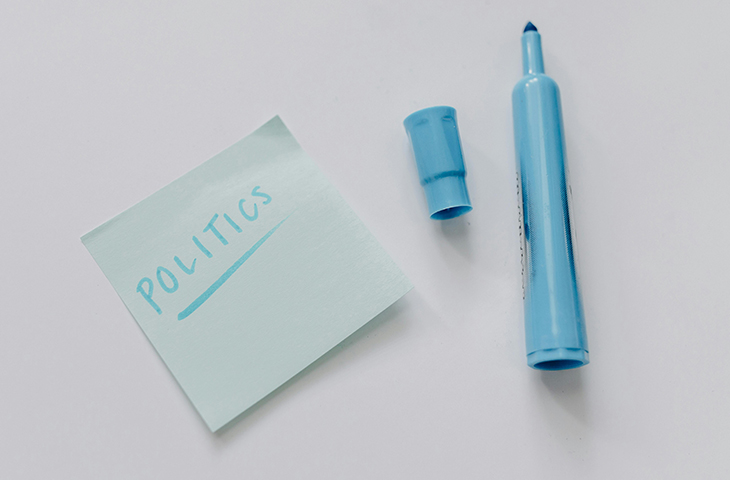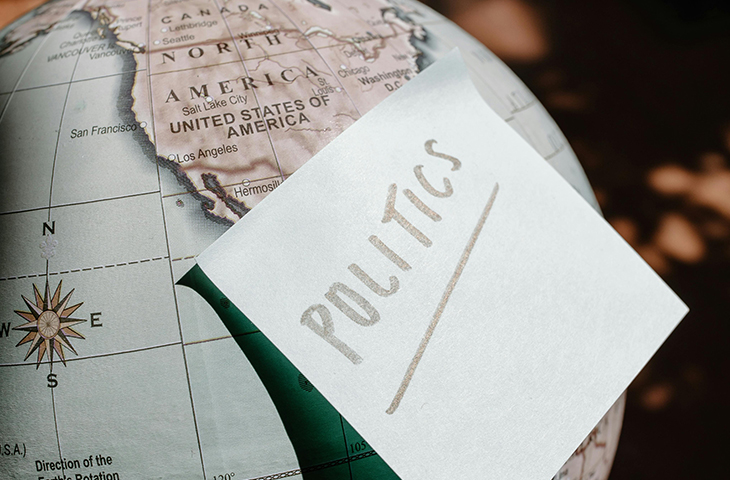Trump Is Signaling He’s Open To Exempting Some Goods From Tariffs. But Persuading Him To Do It Is A Different Matter.

Car companies, toy manufacturers, farmers, retail groups and others who face significant cost increases from President Donald Trump’s steep new tariffs on China are all ramping up their lobbying of the administration to press for carve-outs and assistance.
But, with no formal process in place to submit their requests, and no direct line to the one decision-maker who matters, most businesses and industries are hitting a wall, so far. And those in the business world with connections to the White House figure it’s likely to stay that way until an industry can demonstrate to the president there’s a true crisis at hand.
“There’s only one person that can really authorize that exemption and that’s the president,” said one business representative with close ties to the Trump administration, who was granted anonymity to speak candidly. “So if you’re not a company that can whisper in the president’s ear or make the trip to Mar-a-Lago and do it persuasively, then you’re sort of frozen out of the process for now.”
After insisting for weeks that there would be no special treatment in his trade war, Trump exempted a broad chunk of electronic products from the levies. But other industries so far haven’t had similar luck.
The inconsistency on exemptions highlights the rising tension facing Trump’s trade agenda: a firm, across-the-board tariff on top trading partners risks driving up inflation and plunging the economy into a recession. But if he begins granting relief to numerous industries, it could undermine Trump’s goal of bringing back manufacturing jobs.
“You can’t give in to existing businesses or protect consumers at the same time that you think you’re going to reshore American manufacturing,” said Derek Scissors, a senior fellow at the right-of-center think tank American Enterprise Institute and the chief economist of the China Beige Book, an economic tracker.
For the White House, it’s a slippery slope. Trump and his top trade lieutenants had maintained since the start of his term that allowing exemptions to the tariff increases would risk hollowing them out.
“If you have Swiss cheese in the action, it can undermine the overall point,” U.S. Trade Representative Jamieson Greer told the Senate Finance Committee last week. “Which is to get rid of the deficit and achieve reciprocity.”
The White House has denied that the carve-out from its 125 percent tariff on China, issued without fanfare by Customs and Border Protection last Friday evening, is either a rollback or exemption — pointing to the fact that the electronic products in question still face a 20 percent tariff Trump has imposed over China’s production of fentanyl, and noting that a national security investigation into semiconductors could result in further tariffs on electronics. Kush Desai, a spokesperson for the White House, called the decision to carve out electronics a “nuanced, strategic approach.”
“This approach will build on the hundreds of billions of dollars’ worth of electronics and semiconductor investment commitments that the administration has secured without letting China exploit loopholes to keep undermining American industries and workers,” Desai said.
But the decision to include such a broad swath of products — the U.S. imported 81 percent of its smartphones from China in 2024, according to data with the World Trade Organization — gave businesses hope that there may be more relief coming as the administration tries to calm financial markets that had been teetering after global tariffs went into force on April 9.
"I think we got a little excited when we all saw the smartphone, some of the electronic exemptions, but then they kind of walked that back pretty quickly,” said one ag industry representative granted anonymity to speak candidly.
A Republican lobbyist, granted anonymity to speak candidly about private discussions, said some businesses — particularly those that are dependent on materials that aren’t grown or can’t be made in the U.S. — felt they had had convinced White House staff that tariff exemptions were necessary, at least temporarily, to ease the blow to their industries. But Trump or those close to him subsequently rejected the exemption.
The president, however, has signaled that there may be at least one other tariff exemption coming — for automakers. “They need a little bit of time” to make cars and car parts in the U.S., he said Monday at the White House.
Car companies, which have been hit with a 25 percent tariff on automobiles since March 26 and face additional tariffs on auto parts that go into effect in May, have been actively pushing the administration to exempt some parts, particularly those that comply with USMCA.
Trump’s remarks were an encouraging sign, said former Missouri Gov. Matt Blunt, president of the American Automotive Policy Council, which represents Ford, General Motors and Stellantis.
“There is increasing awareness that broad tariffs on parts could undermine our shared goal of building a thriving and growing American auto industry, and that many of these supply chain transitions will take time,” Blunt said.
American auto manufacturers have already had some success lobbying for carve-outs to Trump’s tariffs. Just a day after 25 percent duties on Canada and Mexico went into effect last month, the White House paused the tariffs on goods that are compliant with the North American trade agreement Trump negotiated in his first term.
That was a huge break for the auto industry, since North America’s auto supply chain is highly integrated and Mexico and Canada are the top two exporters of auto parts to the U.S. The pause also included an exemption on exports of Canadian potash, a major component for fertilizers, in a significant victory for farmers.
But the agriculture industry has had less success lobbying for other protections from the trade war fallout. Food industry groups representing products that can’t be produced in the U.S. due to climate or labeling requirements — like some produce, spices and alcohol — have been requesting exemptions for imported products for months. But the administration has effectively brushed them off, pushing them to pressure other countries not to impose retaliatory tariffs instead, according to two people familiar with the conversations who were granted anonymity to discuss negotiations.
Powerful agriculture groups like the American Farm Bureau Federation and lawmakers from farm-heavy states are urging the administration to prepare to bail out farmers hit by retaliatory tariffs. In Trump’s first term, farmers received $28 billion in federal aid to compensate for the losses from the trade war the president launched with China. Farmers are seeking far more this time around, given how much higher Trump’s second term tariffs are, and how many countries are involved.
Other consumer products manufacturers that rely heavily on Chinese imports, such as clothing retailers, toy-makers and personal care manufacturers, have also called for exemptions. But they’ve made little headway with the administration, which has no clear point person to bring requests to.
"There is no process for exemptions. ... A lot of companies are taking an all-of-the-above approach,” said another representative of industry, granted anonymity to speak candidly, including reaching out to lawmakers and lower-ranking U.S. officials. “And I think that it is reflective of the administration's approach, that this is not just siloed in one office."
For now, it’s not clear what that endgame is. The White House said Trump remains committed to walling off American manufacturing from malign foreign competitors, like China, while arguing he’s also open to negotiations, including with domestic industries who say they will be irrevocably harmed by the tariffs.
“The point the president was making is flexibility,” White House press secretary Karoline Leavitt said in response to a question about potential auto exemptions. “And he has flexibility when it comes to negotiations and talks.”
Ari Hawkins, Grace Yarrow, Daniel Lippman, Oriana Pawlyk, Joe Gould and Chris Marquette contributed to this report.


